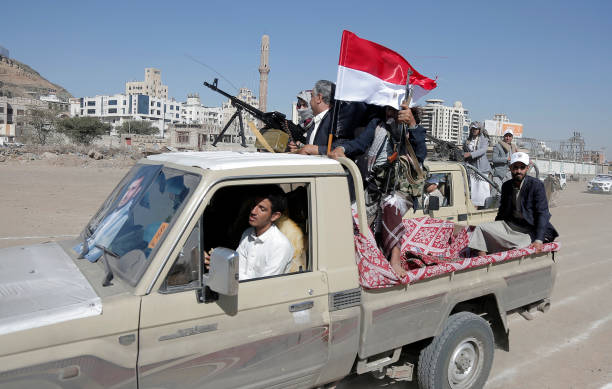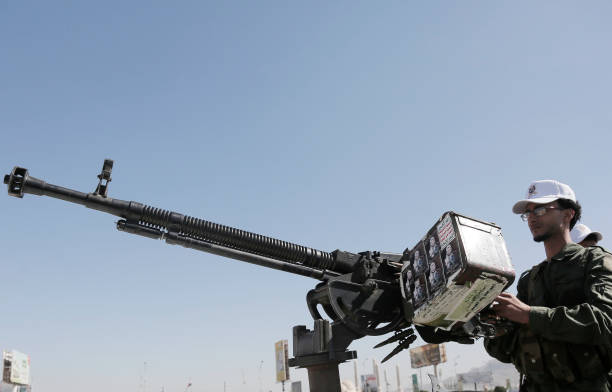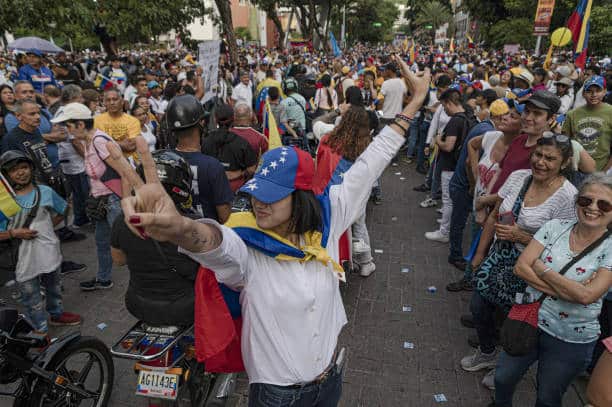‘It’s how the regime fights its ‘death by a thousand cuts’ strategy against Israel,’ expert says
For several days, security officials in Israel and the United States have been feverishly augmenting the defences of the Jewish state following the successive assassinations of Hezbollah and Hamas leaders.
On Monday, Iran substantiated these security apprehensions by asserting that regional stability could only be attained by “punishing” Israel for the alleged assassination of Hamas leader Ismail Haniyeh in Tehran.
Though a direct attack on Israel would mark only the second instance of Iranian aggression despite years of antagonistic rhetoric and military posturing, it aligns with Tehran’s entrenched “ring of fire” strategy, aiming to encircle Israel with militant forces and initiate hostilities against the Jewish state.
“The Ring of Fire strategy… is not designed to be theoretical. It’s how the regime fights its ‘death by a thousand cuts’ strategy against Israel,” explained Behnam Ben Taleblu, an Iran expert and senior fellow with the Foundation for Defense of Democracies (FDD), in an interview with Fox News Digital.
ISRAELIS MAINTAIN CALM AMID IRANIAN THREAT

Taleblu highlighted how virtually every militant and terrorist organization in Israel’s vicinity is not only supported by Iran but also equipped with a variety of Iranian weaponry, including rockets, mortars, drones, cruise missiles, and, in some instances, ballistic missiles.
“What the regime is likely to try to do,” Ben Taleblu elaborated, “is to go for a 360-degree attack vector, attempting to strike Israel from multiple directions.”
ALSO READ : The Bachelorette: Sam M.’s Alleged Ex-Fiance Who Cheated on Him
Tehran has historically depended on proxy groups in the Middle East to wage its conflicts, thereby avoiding the direct involvement of Iranian troops in prolonged and lethal wars.
According to open-source findings by the FDD, Iran has furnished funding, training, and/or weaponry to at least 19 terrorist organizations across Gaza, the West Bank, Lebanon, Syria, Iraq, and Yemen.
Certain groups have received substantial support, such as Hezbollah, which obtains $700 million annually, and Hamas, which receives $100 million each year, in addition to the tens of millions also sent to Islamic Jihad, as cited by Israeli Defense Minister Yoav Gallant.
“The Iraqi militias, the Syrian militias, and the Houthis have, over the past decade, become a crucial element of Iranian strategy,” Bill Roggio, senior fellow at the FDD and founding editor of “The Long War Journal,” also told Fox News Digital. “They’re not bearing the human cost for their involvement.
“The Iranians, they could play this game indefinitely,” he added.
ISRAEL CONSIDERS PREEMPTIVE STRIKE ON IRAN AS TENSIONS MOUNT: REPORT
Both security experts noted that the U.S. and Israeli strategy has been to counter Iranian attacks with more sophisticated methods, signaling their capability to inflict damage on the Islamic Republic at a much lower cost than Tehran can achieve.
However, this strategy has led Tehran to believe that neither nation will retaliate with the same intensity that Iran is willing to direct at Israel specifically.
On Monday, Iranian foreign ministry spokesperson Nasser Kanaani stated that “Iran seeks to establish stability in the region, but this will only come with punishing the aggressor and creating deterrence against the adventurism of the Zionist regime.”
Israeli officials have been enhancing their defensive and offensive capabilities on the ground and in the air as security officials globally anticipate Iran’s imminent attack.
“It appears to be… a matter of when, and not if,” Ben Taleblu remarked.
In April, Iran launched its first direct assault on Israel after the IDF targeted an Iranian consulate in Syria, resulting in the deaths of 13 people, including Brig. Gen. Mohammad Reza Zahedi, an Islamic Revolutionary Guards Corps (IRGC) senior commander, and his deputy, Gen. Mohammad Hadi Hajriahimi.
BIDEN TO MEET WITH NATIONAL SECURITY TEAM AHEAD OF ANTICIPATED IRANIAN ATTACK AGAINST ISRAEL
In retaliation, Tehran launched approximately 300 rockets and drones at Israel, causing minimal damage, with no Israeli fatalities reported as 99% of the strikes were intercepted.
Taleblu noted that the April attack was a balancing act, with Tehran seeking to respond forcefully but without escalating to an all-out regional conflict.
This time, however, officials believe Iran is determined to prove itself following the assassination of Haniyeh on Iranian soil through a sophisticated bombing scheme believed to have taken months of planning and preparation.
“It underscored the level of vulnerability in Iran’s security apparatus given that this was a pre-placed bomb that could be remotely detonated,” Taleblu said. “They’re trying to compensate for that humiliation.”
While Israel has not claimed responsibility for Haniyeh’s killing, Iran and Hamas have accused Jerusalem of orchestrating the attack and have vowed retaliation.
Officials now anticipate that Iran may attempt to overwhelm Israeli and American defenses in a multipronged assault using not only more advanced IRGC munitions but also a layered approach involving its regional proxy forces poised on Israel’s borders.
“The Iranians have waged a four-plus decade-long shadow war against the Israelis and the Americans,” Taleblu said. “And the trend suggests they feel increasingly emboldened to emerge from the shadows.”
“That’s a concern for everyone who desires less conflict in the region,” he cautioned.



